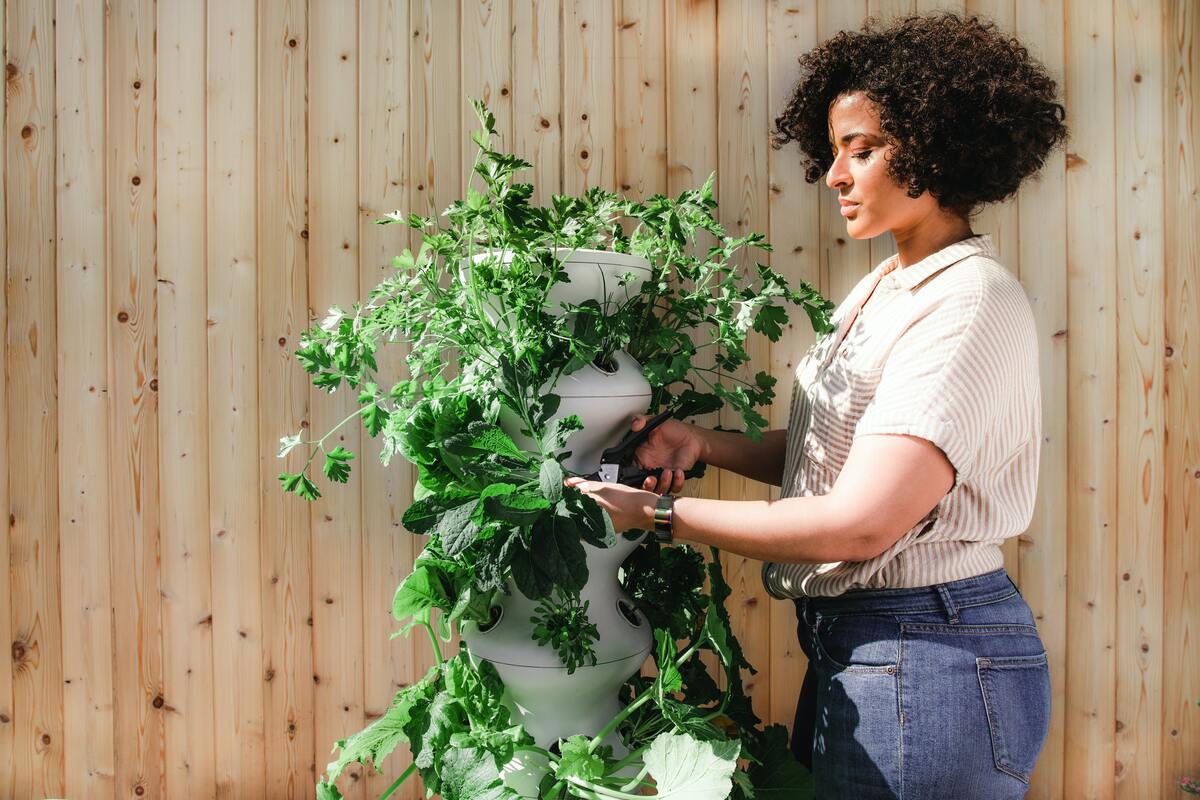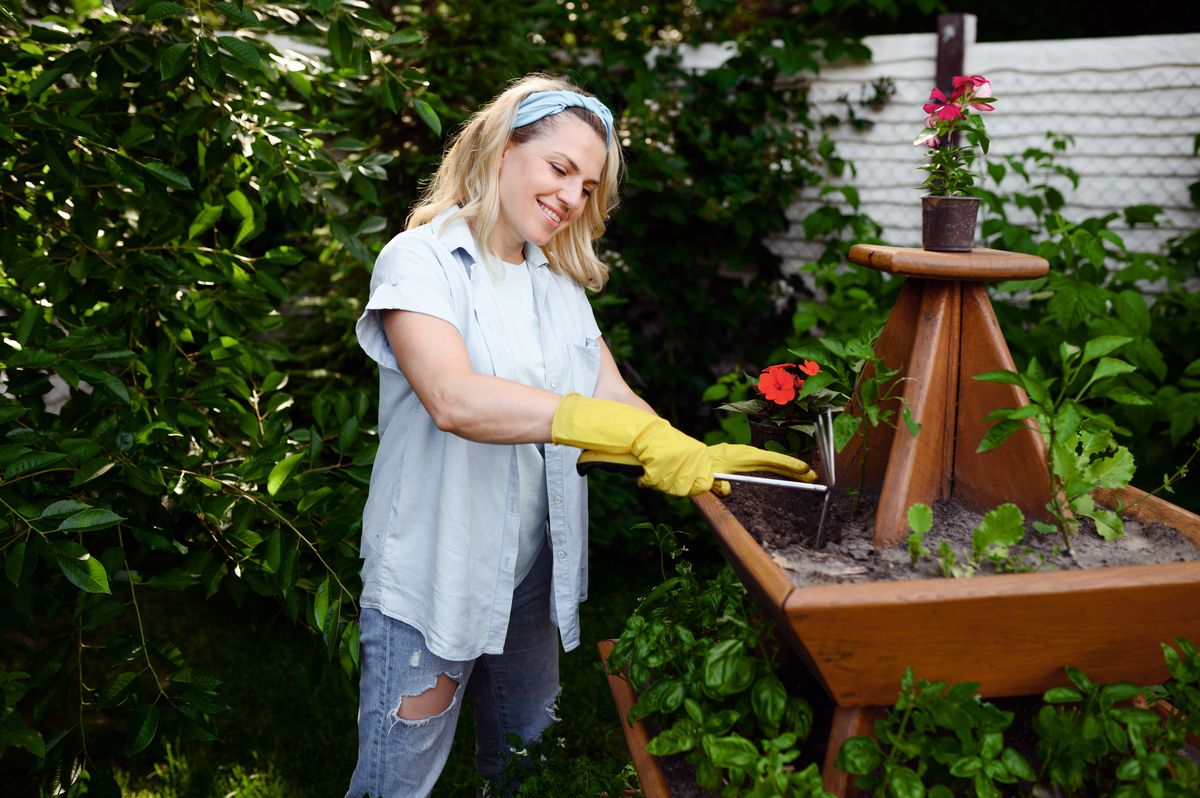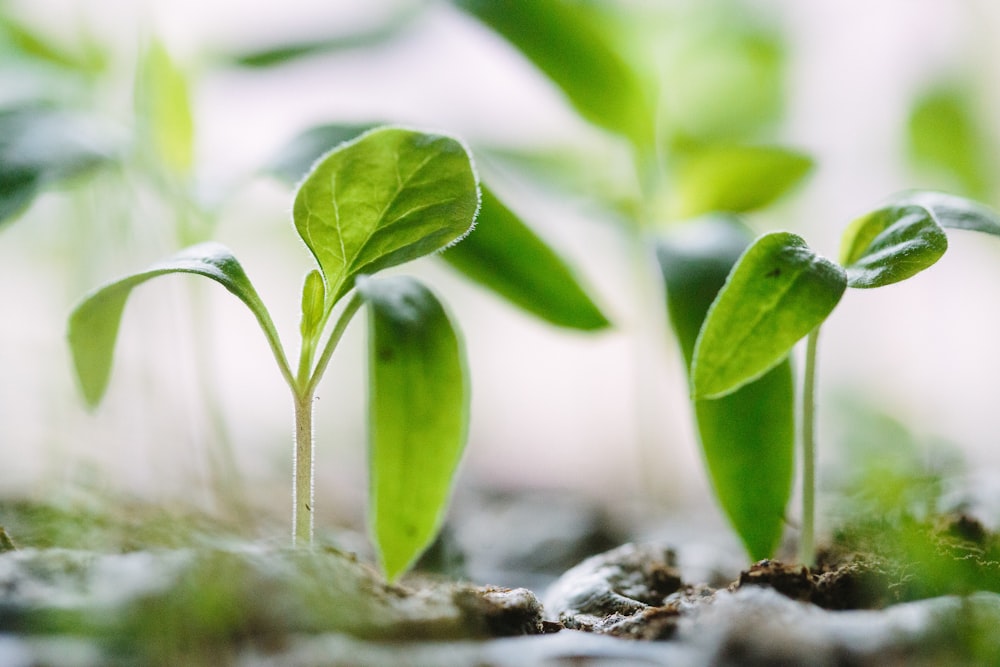
Do you live in the city, in a high-rise apartment, or a condo with no backyard? It may be time to look into some gardening tips for your balcony, deck or patio, to reconnect yourself with nature and add some beauty to your outdoor space.
Amid the busy, ‘concrete jungle’ city life, it is tough when you feel disconnected from nature. This is especially true when you live in city apartments or high-rise buildings, where often, the traditional garden or lush backyard is out of reach, and the nearest burst of greenery or flowers is a walk to the nearest park.
If you are looking to reconnect with nature despite living so high up from the ground, a balcony garden might be a great starting point for you. Studies have found that exposure to nature, plants and flowers can improve emotional and physical well-being. Additionally, having some houseplants can help improve the quality of air in your home.
There are plenty of beautiful plants that you don’t need a yard for. There are plants you can set up on your balcony, such as flowers, vines, shrubs, bonsais, and even some fruits and herbs. However, you have to consider how high up your unit is, as wind is a factor that will determine what kind of plants will be good for growing. Additionally, it is important to check the weather conditions where you live, especially if you experience the four seasons. Assess how much sunlight your balcony gets throughout the day, and if it’s not much, consider types of plants that need less sunlight, such as the Zamioculcas Zamiifolia plant.
With the right gardening tips, you’ll be able to create a more colorful, beautiful, and more green balcony which will make you want to have patio parties much more often.
In this article, you’ll find some gardening tips to brighten up your ‘concrete jungle’ living space. Learn more about nurturing your own garden balcony below:

Gardening Tips for High-Rises: Which Sturdy Plants are Great for Balconies?
Whether you have a small shady condo balcony or a sun-drench rooftop terrace, you can make room for, and tend to, a few plants. There are many variants that adapt well to a container while holding up to the increased wind or heat in your elevated location. Below is a list of the sturdier plants that will thrive well in your balcony garden:
1. Bamboo
Bamboo is great for high-rise balconies in areas that experience harsh winds and storms regularly. This is because bamboo is extremely sturdy. Aside from bringing a bit of nature to your space, it also acts as a safety barrier to protect the windows. Bamboo is also virtually low maintenance, and very beautiful to look at.
2. Rhus Typhina
Also known as Golden Sumac, this plant is often reared in a traditional garden as it grows outwards and spreads. However, they can be easily grown in a pot or container, as well. This type of plant is wind-resistant and looks aesthetically pleasing when billowing in the wind. Noteworthy, if you live on a high floor, sturdy plants that won’t break off are essential. The last thing you need is broken branches scratching your windows or flying to hit people below.
3. Gazania
Gazania is great for dry conditions, like if you live in particularly warm states that do not experience snow. These plants are great for adding a pop of color as they come in red, yellow, and a bunch of other colors. They are also very low-maintenance and can withstand heat.
4. Frangula
Frangula is a very pretty flowering shrub. It grows up to 10 or 20 feet high, so it will need a bit of maintenance and consistent pruning. It is also highly wind tolerant, making it a great addition to a high-rise apartment balcony that gets hit with lots of wind.
5. Monsteras
Monsteras are great for humid weather. They are best kept in the shaded areas of your balconies. These plants also come in different varieties, with some boasting unique leaf patterns and colors, to add some character to your balcony space.
6. Apple or Pear Trees
Who wouldn’t want a cute little fruit tree on their balcony? Apple and pear trees are small, sturdy trees that are great for growing in cold and temperamental weather. These are great for areas that snow or are particularly cold for most of the year. To avoid overgrowth, these plants can be kept in pots and sheared.
7. Hydrangea Arborescens
One of the best gardening tips you’ll want to take note of, is which plants can withstand all weather conditions. Hydrangea, though flowery, is a woody plant. Moreover, it can withstand all types of weather, making it the perfect perennial flower that can endure all four seasons. This variant is virtually low maintenance. However, as a plant with many small flowers with tiny petals, you will have to sweep up dried leaves and petals that may fall onto your balcony. It is, however, a small price to pay considering the low maintenance it is and the beauty it brings to your space. (Besides, when the petals fall, it can also look pretty.)
You may also grow some herbs like basil or scallions and easy fruits like tomatoes. Though these are best kept indoors due to low wind resistance, you can also take them out to your little balcony garden in good weather and a few times a day to get some much-needed sunshine. Just remember that in the long term, the sturdier plants, as mentioned in the list above, are best for balconies.

To Use a Seed or Seedling?
One common question asked when it comes to gardening tips, and when it comes to getting started on any gardening endeavor, is whether to buy seedlings or to start from scratch with plain seeds. You can do both! However, it is always good to take the following gardening tips into consideration:
1. Be Aware of the Time it Takes to Grow Something
Starting from scratch with soil and seeds is more time-consuming, so don’t expect instant gratification. Additionally, the plants will require more consistent care as they develop.
Seedlings or potted plants are a better option if you have little time on your hands, as you can skip the step of tending to them with extra care needed in their early stages.
2. Budget Considerations
Seedlings in tiny plastic bags, pots or containers tend to be more expensive, as the assumption is all the hard work has been done. You do not need to plant a seed, water it regularly, and frequently fertilize it.
Purchasing seeds and growing the plants or flowers yourself in a pot is more cost-efficient, as you will have to look after your plant baby and see through its development. But if you’re new to growing plants, there’s a risk that the seed will not sprout or the newly developed seedling could die.
3. Some Plants are Easier Than Others to Grow from Seeds
Some plants are a lot easier to grow from seeds, while others prove to be difficult and are better to be purchased once they’re already fully grown. Plants like tomatoes, which are great indoor plants but can be kept out in nice weather, can be easily grown from seed and soil. For woody plants, these are better purchased as cuttings or seedlings, as they tend to be very difficult or time-consuming to grow from seeds.
All in all, whether to buy a potted plant or a seed will depend entirely on your gardening budget, and how much time you are willing to spend tending to these plants, or whether you don’t want to wait for them to grow.
When it comes to gardening tips, most people agree that it’s easier to have most of your collection of plants bought already grown and sold in a pot.
Remember, when it comes to plants and gardening, anyone can bury a seed in soil and grow plants under the right conditions. However, it may be helpful to take a CircleDNA test to see about any genetic conditions such as asthma, or allergies, because certain plant pollens can trigger allergies and asthma.
Other Gardening Tips for Balconies to Keep in Mind
Notably, all the plants on your balcony will have to be potted or grown in a pot or container, as you do not have a dirt ground or yard. In this case, the best choice of pot would depend on the size of your balcony, your aesthetic preferences, and how big you want your plants to be. There are beautiful plant pots that come in various sizes, materials, colors and designs.
For instance, some are generic plastic pots, traditional terracotta, and others are colorful ceramic with cute carvings or painted designs. The key consideration here is that plants will only grow to be as big as the space they are in.
Furthemore, since space is an issue in a tiny balcony, you can use vertical wall plant pouches or tiered planters. This allows you to maximize space, like your balcony wall, and plant more.
It would help to research the plant variants you intend to nurture because certain plants have special care requirements with some plants loving more sunlight or needing more water than others. But in general, growing plants share the same basic needs. Bear in mind that your balcony may not be the optimal location for a garden compared to a yard, but with the right tools and tricks, you can make things work. Here are a few key things to remember:
- Do your research to find out how much water your type of plant needs, how much sunlight it needs, how much attention it needs, and more.
- Do not overwater, as not all plants like too much water, and for some plants, too much water can be harmful. Pots with holes in it can help mitigate root rot from an accidental excess of water.
- Give your plants more nutrients to grow and thrive by purchasing enriched soil.
- Buy the necessities such as decent plant pots, soil, fertilizer, and some gardening tools such as shears. Hit up your local plant nursery and hardware store.
Plants on your balcony in colorful pots will surely beautify your apartment’s outdoor space, making it more inviting for you and anyone who visits to hang out and relax. Keeping a small and pretty balcony garden is also an extremely satisfying hobby that can curb stress. Touching the soil while gardening promotes grounding, which studies say improves mental health, promotes good sleep, reduces stress, and fosters overall wellness.






